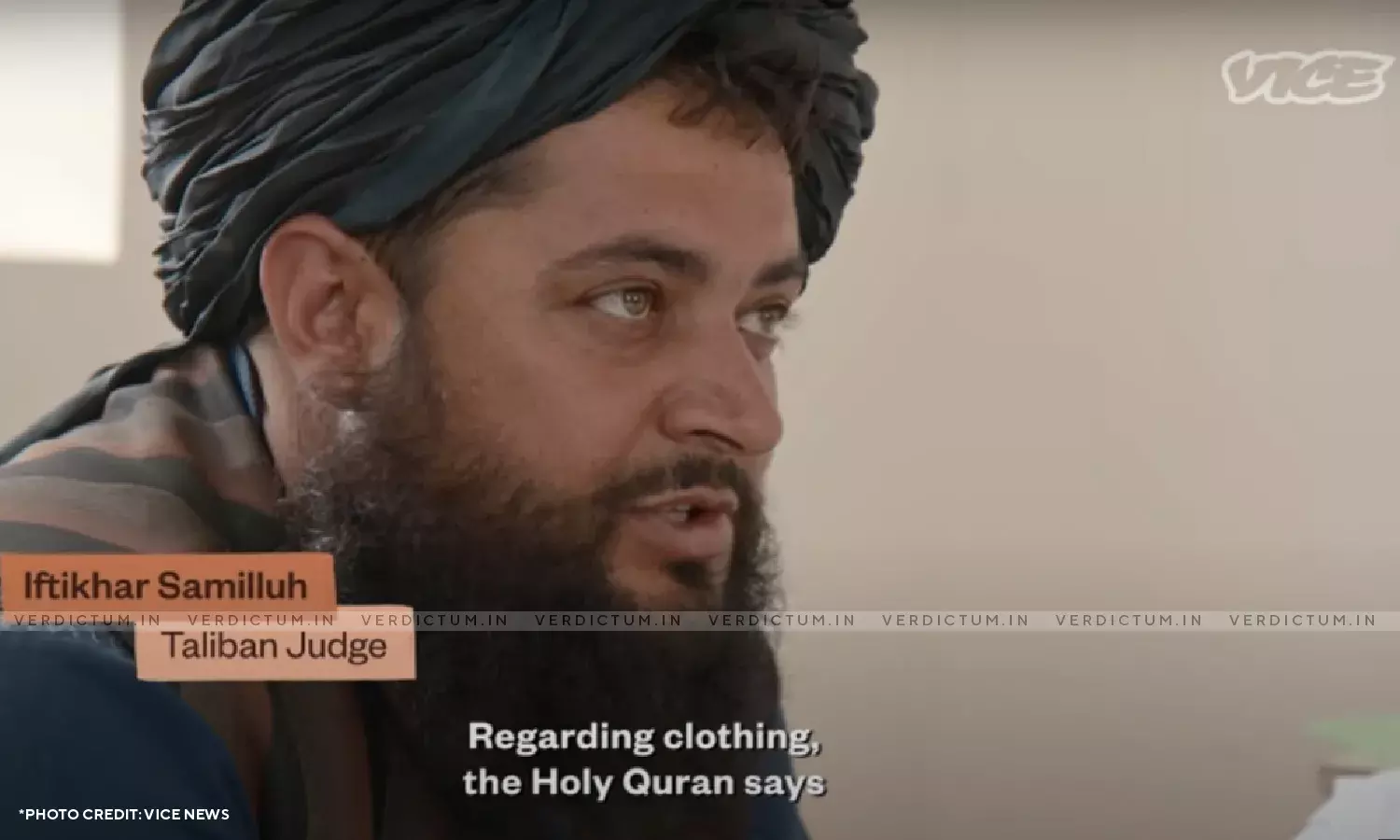Here Is What A Taliban Judge Has To Say On Hijab And Women Judges

A documentary published recently by Vice News about the condition of women in Afghanistan under the Taliban rule shows the functioning of the only form of 'judiciary' in the country, which adjudicates disputes in accordance the Muslim personal law or Sharia.
The documentary titled 'Life in the Taliban's Afghanistan' contains an interview with a Judge named Iftikhar Samilluh in the Wardak province of Afghanistan. As per the documentary, he issues 'fatwas' as well as adjudicates disputes between parties by applying Muslim personal law.
About hijab, he tells the host of the documentary, "Regarding clothing, the Holy Quran says that women should not wear clothes that attract other men. The Holy Quran says that women should sit in their houses. Your husbands are responsible for food, your lives and everything else".
The interviewer asks, "what happens if women don't want to abide by these new rules, meaning they don't want to cover themselves, they don't want to stay at home, they don't want to be invisible?"
"If women don't want to wear the hijab or stay at home, they will be like an open pot. Flies will fall inside, mosquitos and ants will fall in. She won't be safe", the Judge replies.
The documentary follows a case of domestic violence, where the court of Judge Iftikhar Samilluh had ordered the wife to return to her husband since she could not prove her allegations. The brother of the wife shows x-ray films showing fractures that the wife suffered on separate occasions. The host in the documentary confronts the Judge in this context.
The Judge tells the host that the wife could not prove her allegations.
"Where do you think that women in abusive relationships should go for help?", the lady host asks.
"There is no abuse against women. These are only accusations. The women's and men's rights are clear. They are all protected", the Judge replies.
"Do you think that it can ever be justified for a man to beat his wife?", asks the host.
"He can and may beat her without leaving any marks, softly. If he beats her too hard, she can take him to court", the Judge replies.
During the hearing in the hijab cases before the Karnataka High Court, the Bench had asked whether everything stated in the Holy Quran is an essential religious practice. (read report)
It was also reported (read here) that the source cited by the petitioners before the High Court to argue that wearing hijab is an essential religious practice protected under Article 25 of the Constitution, also permits hitting one's wife.
Back to the documentary, the host then asks, "Should women be allowed to your job and preside over cases and determine what justice is?"
"I don't think a woman can be Judge", he replies.
"Why?", asks the host.
"Women have lesser brains and are not good believers", replies the Judge.

